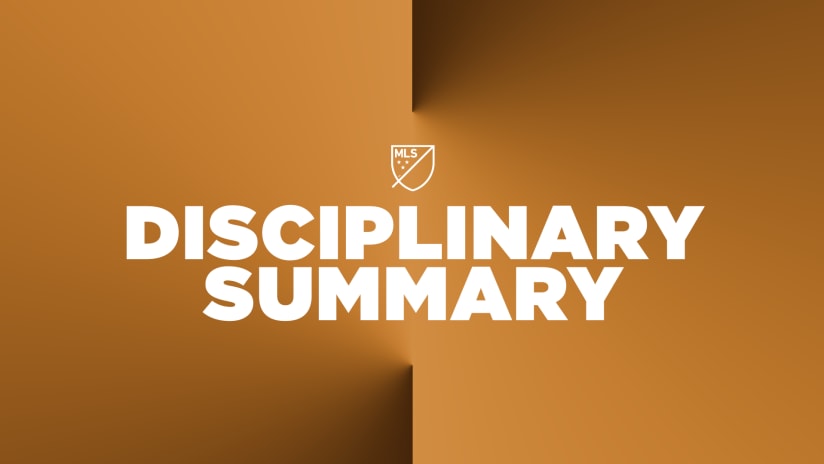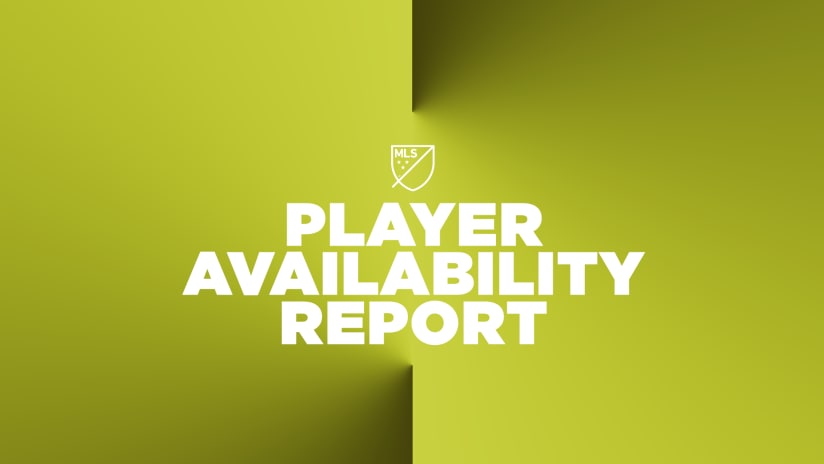There's no sense in coming up with some florid misdirect of a lede, since the thing most people will wake up Monday morning caring about is "What the hell is going on in Minnesota?" They lost 5-1 last week, and on Sunday they lost 6-1 at home against fellow expansion side Atlanta United, who were ruthless and relentless and better prepared and better organized. It wasn't just about talent, but about being superior in literally every facet of the game.
No team in MLS history has gotten off to a worse start than the Loons. Sports Illustrated's Grant Wahl pretty memorably reported last autumn that many around the league expected MNUFC to be one of the worst teams in MLS history, and then doubled down on his reporting by setting their over/under for wins at five. With 32 games left even that looks generous, and while it's too soon for Adrian Heath, Manny Lagos et al to panic, it's certainly time for them to 1) make real changes to the starting XI, 2) real changes to their approach, and 3) ask real questions about what went wrong in their player evaluation and signings.
It starts on the backline, as through 180 minutes the Loons have been utterly helpless defensively. Heath, to his credit, owned this in the postgame press conference.
“We were poor at the back," he said. "We’ve got a lot of work to do there. Whether that means we change one or two things or one or two individuals, we have to look at that for next week."
The biggest adjustment is figuring out the right partner for Francisco Calvo, and in the process coming to terms with the fact that it's pretty clearly not going to be captain Vadim Demidov. As with all sunk cost equations it will be painful to make a change to what was supposed to be the bedrock of the team, but even with such a small sample size to examine it's pretty obviously necessary. Fanendo Adi ran through Demidov in Week 1 and all of Atlanta ran past him in Week 2 – whether it was shooting the gap between him and the right fullback on the second goal, or splitting him and Calvo on the third, there have been literally no good moments for the Norwegian international.
"I think right now the whole thing is just too fast physically and he's struggling all around because he needs to reassess his reads," said former MLSer and occasional MLSsoccer.com contributor Bobby Warshaw, who played against Demidov in Scandinavia. "Unclear if he will figure it out, but yeah, [he is] slow and [I'm] not surprised he's struggling right now."
MLS and Jamaica veteran Jermaine Taylor has been the other main culprit, last week as a right back ( ¯\(ツ)/¯ ) and this week cast in the more-familiar-but-still-nah role of left back. Taylor was unable to slow down either team out wide, which compounded the issues in central defense.
I don't know if Justin Davis (who struggled in Week 1 at Portland) is the answer at left back, or if Joseph Greenspan or Brent Kallman are the answers in central defense. I do know that playing in a torrential rainstorm in Week 1 and a blizzard in Week 2 are difficult and slightly unfair tests.
But let's make it clear: The players aren't succeeding, and in large part it's because they're not being put into position to succeed. Neither Taylor nor Demidov were mysteries:
The news is better further up the pitch. Minnesota has been able to generate both possession and danger in both of their outings, and if not for an outstanding performance from Atlanta's Alec Kann could certainly have had a second or even a third on Sunday. Kevin Molino was dangerous every time he drifted inside off the wings, and I thought there was real attacking intent out of the midfield trio. Johan Venegas's movement is always good, and I've liked what I've seen from Christian Ramirez.
It shows in the numbers, as according to ESPN's Paul Carr they're comfortably mid-table in expected goals generated in attack (2.34). There's something to work with in that front three, and there was more purposeful possession at times from the midfield three as well. There are pieces to work with, and there's both balance and intent when they go forward.
Now they have to find the same structure when they're on the back foot, and quick. Time's not running out or anything, but "worst start ever" can indeed turn into "worst season ever" if significant, forward-thinking changes aren't made.
Re-Ignition
Through two games the Houston Dynamo defense has been everything Minnesota's hasn't. They're compact and in sync and generally have been very good at making the opposition beat them, rather than just gifting opportunities left and right. It hasn't been flawless – they can still be beaten for pace, and can still give the ball away in bad spots, etc. etc. etc.
But the Dynamo are pretty clearly built around the idea that defending deep and staying compact is what will give them the best chance of getting results, and after Saturday's 3-1 win over Columbus they're now at six points from two games. They managed it with just 39.6 percent of the ball, and were outshot by 14-to-7.
Charlie expanded upon his Yoda-esque observation when I asked:
"I'm pretty fascinated by the shift from possession to packing as a metric of success. In the HOUvCLB case, accurate passing over long distances was key – Alex, Eric Alexander and I believe Rico Clark all found Dynamo strikers with big switches to spark counters last night. Could technically be considered 'long ball,' but not really – most of them were right to feet. Lots of really smart movement by tha gawd Cubo as well."
Here's that principle in action:
The touch. The finish.
— Major League Soccer (@MLS) March 12, 2017
So good Cubo, so good. #HOUvCLBhttps://t.co/iTomoTeeK4
There is some irony, of course, that nobody uses the long ball to generate chances as effectively as Crew SC. Ben Baer made a fairly compelling argument that it's maybe gone stale for them, but I don't think I agree – Columbus's attack mostly looks pretty good to me, even if the finishing has been poor.
I think the question Crew SC have to ponder is the one that Houston seem like they've skipped right over: What do we do with the ball in possession? Columbus's answer has to be some version of "be more precise with our deep distribution and stop leaving our fullbacks out to dry."
Houston's answer is "who cares?", and it's working for them because they explode from one crystallized stance (pure but not reactive defense) to another (attacking at pace) without worrying about anything in between those two poles. That means there are fewer chance to string together long, inventive passing sequences, but there are also fewer chances for turnovers.
Those are two drastically different approaches, and it shows in how they use those long-balls. Columbus slice the field with diagonals to create overloads, like when Harrison Afful bombs up the right flank and is joined by both Ethan Finlay and Federico Higuain. Houston, on the other hand, uses long-balls to create chances in isolation. The last thing Wilmer Cabrera wants is a fullback dragging more opposing players into Torres's neighborhood, or Romell Quioto's, etc. etc. etc.
It's different, and it's working.
A few more things to ponder...
8. Minnesota will get all the headlines, but I'd argue the Galaxy have actually had a worse start to their season following Sunday's 1-0 home loss to Portland. Other teams are losing games, dropping points and suffering injuries. LA are doing all three, at home against Western Conference playoff rivals.
Intra-conference games are orders of magnitude more important inter-conference games, and the Galaxy have already dug themselves a decent hole in 2017.
7. Our Pass of the Week goes to Dominic Oduro for this nifty bit of footwork in Montreal's 2-2 draw against Seattle:
The Impact's failure to address their weakness in the air along the backline cost them points in this one, as they had no way of matching up with Will Bruin once Brian Schmetzer started making subs.
6. The Red Bulls could not beat Tim Howard in Howard's return to action for Colorado this past weekend. Their relentless pressure, however, did force a second own goal in two weeks and they're now sitting on six points after a 1-0 win over the Rapids.
5. Philly seemingly went the entire second half of last season without getting goals from their center forwards. On Saturday, though, both Jay Simpson and C.J. Sapong found the back of the net in a 2-2 home draw against TFC.
4. I wrote a bit about the Chicago Fire following their 2-0 win over RSL on Saturday. Chicago have looked legitimately dangerous for long stretches.
RSL have not, and they're already in the midst of an injury crisis. Their top three central defenders all missed the game, and Joao Plata was scratched late in the week, and Jordan Allen was subbed off midway through the first half. Combine it with Yura Movsisyan's tough start, and you have the recipe for an unsettled fanbase.
3. RSL have no goals in two games, and the same can be said for Sporting KC. Still, there was some optimism after Saturday's scoreless home draw against FC Dallas – not a great result, nor a great performance, but Gerso Fernandes looked good creating chances and he also gave us our Face of the Week after an unexpected yellow card:
STRONG Face of the Week contender from Gerso. Welcome to @MLS! pic.twitter.com/fgeUhvduLY
— Matthew Doyle (@MLSAnalyst) March 12, 2017
2. Also with no goals in two games: D.C. United, who were run off the pitch to the tune of 4-0 by NYCFC on Sunday morning. D.C.'s backline was routinely pulled apart by the City attack, and defensive midfielder Marcelo Sarvas is quite possibly starting to show some wear and tear.
1. And finally, it looks like the Quakes have sorted out at least some of their issues in terms of chance generation following Saturday's 3-2 win over Vancouver. Rookie Nick Lima has proven to be a relentless overlapping threat from right back (he got his first pro goal this weekend), Albanian winger/playmaker Jahmir Hyka was a force constantly driving the ball into the middle of the 'Caps defense, and Anibal Godoy scored another golazo.
Granted, most of this came against 10 men. But it was nonetheless the same type of stuff they showed in Week 1, and so far it looks both functional and replicable. It's too soon to celebrate, but it's not too soon to start feeling at least a little bit happy.













